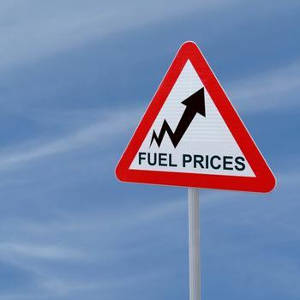Fuel Price Increases Spark Changes For Retailers

Private and motor trade drivers will no doubt welcome that the UK government is to act against unfair fuel pricing.
Motoring costs are increasing everywhere: car parts, insurance, and mechanic labour are just a few examples. In this article, we’ll explore how this can affect motorists and their finances.
In 2023, the government highlighted that certain supermarkets failed to adjust fuel prices at the pump following wholesale cost changes, resulting in customers paying more for fuel.
The revelation stemmed from an investigation by the Competition and Markets Authority (CMA), which uncovered that supermarkets were imposing an additional 6p per litre for fuel, accumulating to a staggering £900 million in extra costs to drivers in 2022 alone.
Organisations, including the Petrol Retailers Association representing independent forecourts, accused these fuel retailers of prioritising profits over fair pricing.
The government is introducing “tough new powers” targeting retailers engaged in unfair fuel price increases to address this.
The CMA will closely monitor fuel prices and promptly report any signs of price manipulation to the government, aiming to enhance competition in the market and prevent unjust charges at the pump.
One significant change involves making it a legal requirement for fuel retailers to share their daily fuel price information. The government is working on an “open data scheme,” with the initial phases expected to roll out in autumn 2024.
Non-compliance with these regulations could lead to retailers facing a fixed fine of 1% of their worldwide turnover or an ongoing fine of 5% of their daily turnover.
While the CMA is encouraging the voluntary sharing of fuel pricing data by retailers for the time being, the government intends to make this sharing a legal obligation. Failure to comply with the new regulations could result in substantial fines.
The CMA has already initiated investigations into fuel retailers, imposing fines where necessary. In a report on the road fuel market last year, the CMA revealed a decline in competition since 2019, leading to private and motor trade drivers paying more for fuel despite fluctuations in wholesale prices. Asda, for instance, faced a £60,000 fine for non-cooperation with the CMA’s investigations.
The push for greater transparency in fuel pricing could benefit motorists by fostering more competitive pricing. As the government and the CMA work towards finalising laws and legislation, the temporary voluntary data-sharing scheme remains in place, offering a glimpse into the potential improvements in the fuel retail market.

Claire Coutinho, Energy Security Secretary, said, “At a time when many were struggling with increased living costs, we saw shocking behaviour from some fuel retailers who failed to pass on savings at the pump.
“Now we are cracking down on any petrol station bosses found to be unfairly hiking up their prices.
“That’s why we’re giving the CMA new powers to bring fairness back to the forecourts and make sure UK drivers get a competitive fuel price.”
Some of the fuel retailers that have shared their fuel pricing data are:
Applegreen UKAscona GroupAsdabpEsso Tesco AllianceJET Retail UKMorrisonsMotoMotor Fuel GroupRontecSainsbury’sSGNShellTesco
You can find out more about these retailers and the price of their fuel at GOV.UK.







